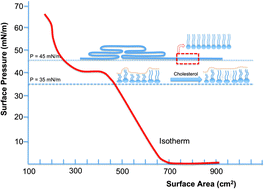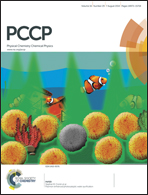Amyloid-β (1–40) restores adhesion properties of pulmonary surfactant, counteracting the effect of cholesterol
Abstract
A pulmonary surfactant (PS) is a thin lipid-protein film covering the surface of the lung alveoli at the air/liquid interface. The primary purpose of a PS is to control the surface tension of the air/liquid interface and to reduce the work of breathing. High levels of cholesterol in a PS are associated with life-threatening acute respiratory distress syndrome (ARDS) and acute lung injury (ALI). Finding therapeutics to counteract the effect of cholesterol in a PS is a matter of contemporary research. In our earlier work, we showed that the addition of amyloid-β (1–40) (Aβ40), the protein implicated in Alzheimer's disease, can reverse the detrimental effects of cholesterol in surfactants by improving multilayer formation and restoring PS surface active properties. We hypothesized that this phenomenon was due to Aβ40 improving adhesion properties of a surfactant. In this work we used atomic force spectroscopy to demonstrate that Aβ40 counteracts the adhesive properties of a PS compromised by high levels of cholesterol in a PS and helps to restore the functionality of a PS.


 Please wait while we load your content...
Please wait while we load your content...